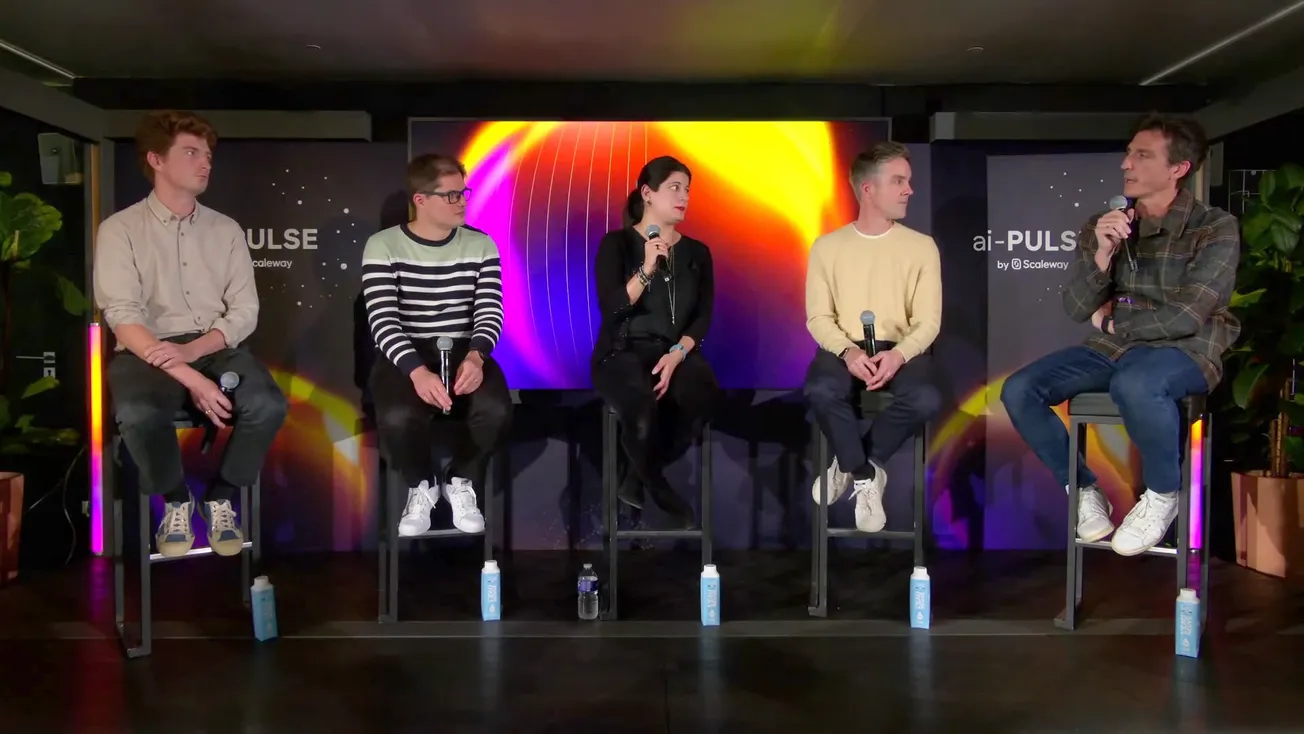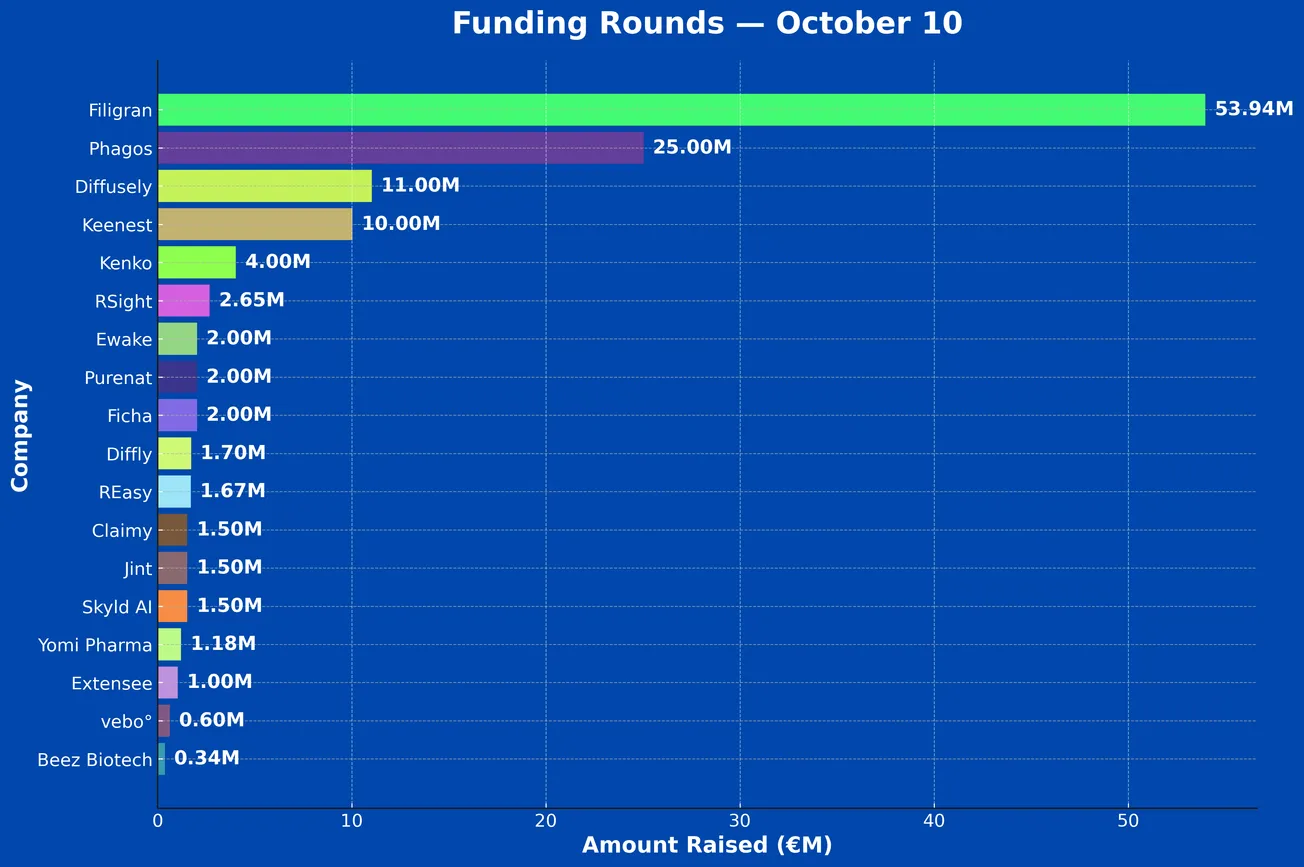At the ai-Pulse conference in Paris, leading European venture capitalists tackled one of tech's hottest debates: whether to bet on horizontal AI platforms or vertical industry-specific solutions.
The discussion, moderated by Felix Capital's Julien Codorniou, revealed both the opportunities and challenges facing Europe's AI ecosystem as it competes with Silicon Valley.
The Big Question: Horizontal vs. Vertical
"The pros and cons are maybe simplistically that you can generate quicker revenue and faster product-market fit with a vertical solution," explained Paul Murphy of Lightspeed Venture Partners, which led Mistral AI's seed round. However, he noted that many successful tech companies, including Amazon, Stripe, and Palantir, started with vertical solutions before expanding horizontally.
Balderton Capital's Rana Yared added a crucial caveat to the horizontal approach: power consumption. "When we look at horizontal and model generation, we're very focused on companies that have the capability to provide excellence and accuracy without needing huge amounts of compute power," she explained, highlighting the practical constraints facing AI companies in Europe.
Alexis Robert of Kima Ventures offered the view from the founder's perspective: "Building startups is all about making things people want." He noted that even horizontal platforms often need vertical go-to-market strategies to succeed, citing Airtable's templating system as an example of how horizontal platforms can effectively target specific verticals.
The AI Native Question
A clear divide emerged between early and late-stage investors regarding AI-native companies. Murphy said that for early-stage investments, "it would be the exception for us to not invest in an AI native company today." His firm assumes that companies built in previous paradigms must undergo significant pivots to remain relevant.
However, Yared argued that existing companies can effectively incorporate AI without fundamental transformation. She cited lending companies as an example, where AI can improve existing processes without requiring a complete business model overhaul.
The Valuation Game
With French AI companies like Mistral and Poolside commanding impressive valuations, the panel explored how investors price these opportunities. Murphy emphasized the importance of scarcity and market size in valuation decisions, while Yared highlighted a unique dynamic boosting European valuations: American investors looking for alternatives after missing deals in the U.S.
"When our American brethren look at deals in the US, and let's say they miss a deal in a subject area they care about, they get this fear of missing out. And then they start looking around the world, and then they look into our pool," Yared explained.
A new challenge is emerging, however. Murphy noted that many AI teams are returning to the market seeking $20-30 million rounds, not for traction but to hire AI scientists from Meta and DeepMind who command $1-2 million packages. "Even for a large fund, that is very difficult to underwrite," he admitted.
Competing with Big Tech
As companies like OpenAI establish European offices, the panel addressed how local startups can compete for talent with deep-pocketed American firms. Yared framed it as a mindset issue: "Do you want to be employee number fill-in-the-blank at big tech, or do you want to be at the ground level, doing something groundbreaking?"
Gabriel de Vinzelles of Frst highlighted the equity advantage, noting that early employees can earn significantly more joining a startup than taking a big tech salary. Robert added that startups' speed and agility give them an edge over larger competitors: "Large companies have cash, but they are slow and political. Startups are quick, fast, and hacky."
The Regulation Opportunity
Rather than viewing European regulation as a hindrance, the panel saw potential advantages. Murphy suggested that as the U.S. becomes more insular, European regulation could become the global standard. Yared added that thoughtful regulation could actually accelerate AI adoption among large enterprises, particularly in regulated industries like banking and healthcare.
The Future of European AI
The discussion revealed tension between building global companies and maintaining European roots. While de Vinzelles advocated for "roots in Europe, but business in the states," Yared cautioned against this approach: "If all of us are advising our companies to recenter their businesses towards the US, then all those amazing exits are US exits... and we're naturally draining the European ecosystem."
She noted that Europe offers significant advantages, including access to engineering talent at lower costs and potentially faster paths to significant revenue: "The path to 100 million of revenue is faster and cheaper in Europe than in the US."








